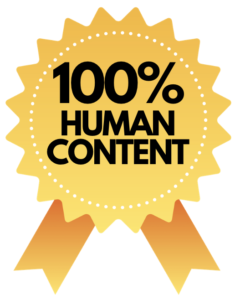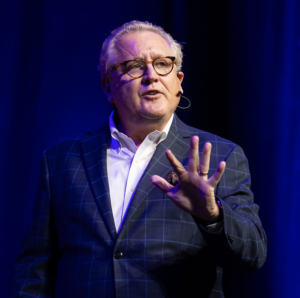
Many universities use my books as assigned texts, and I do my best to pop in for a Zoom Q&A with students when time allows. Recently, one instructor asked me if there was anything they could do in return to help me. I said that I’d like to know, “other than environmental issues, what are students worried about?”
The class gifted me with a set of essays, and the depth of the responses surprised me. Their answers were serious, well-thought-out, and beautifully written. They covered many of the topics you’d expect like getting a job, paying off bills, and the stress of a toxic world.
But one response stopped me in my tracks, and I’d like to share it with you today. It shared a unique perspective … but at the same time, his concern seems so obvious. I’ve edited the comment slightly for clarity. This will get you thinking …
![]()
“Compared to any other generation, Gen-Z creators have a much greater ability to publish their work, artists are freer to share and skip hassle-laden middlemen, and small businesses can start online with much ease. In essence, there is just much more of everything, which is always good. However, as a consequence, there are much fewer shared cultural experiences among my generation.
 “There is unlimited segmentation in every market, and infinitely more consumer options.
“There is unlimited segmentation in every market, and infinitely more consumer options.
“For example, we don’t watch the same late-night show on Saturdays. I could talk about the newest Netflix series I’m watching, and no one in the room will have heard of it. We don’t listen to the same DJs on the radio — we all have hyper-tailored Spotify playlists. There are chart-topping popstars whose names mean nothing to most people.
“So we are rarely united by the shared experiences that brought our parents and grandparents together with friends. This is why I think we’ve been clinging onto mundane things and memes such as Barbenheimer and why the Among Us video game craze got us through Covid-19. We’re hungry for memories with friends and anything that would create a special bond among members of my generation, even if it only lasts a couple of months at a time.
“There is a lot to fear in out world — the environment, war abroad, a pandemic resurgence, and the like. But I fear that as a generation we won’t have a lot of “back then…we all did x” sorts of stories to tell my children one day.”
![]()
Quite an amazing statement, and he’s right.
It made me think of my pre-internet college days. The Student Union building had a music listening room. It was a large room with couches and big pillows all along the four walls. Students would choose on side of a record album to listen to and dozens of students would sit quietly, perhaps studying or reading, enjoying new music through a great sound system.
Similarly, if you wanted to hear rock music, there was one radio station, so that was a shared experience. Everybody stayed up late to watch “Saturday Night Live” and talk about it the next day. If you wanted to see a movie, you gathered a bunch of friends — and you probably had a beer together afterward.
In hindsight, this young man’s observation is so clear, but it’s the first time I’ve seen the dots have been connected in this way.
No wonder Gen Z feels so isolated and disconnected. Much of their world experience is siloed, coming to them through earbuds as they sit alone on a couch.
Toward shared experiences
Unsurprisingly, I just saw an article in The New York Times about groups of Gen Zers forming film clubs. They gather in pubs and other locations to watch and discuss movies together. Could this be the first wave of a new shared experiences trend?
Another recent article documented teens leaving a smartphone liberation movement.
I’m thinking through some of the implications for marketers.
- Can we have too much personalization? Are we putting people in lonely siloes?
- In my book Marketing Rebellion, I predicted that creating shared experiences would become a meaningful part of our marketing future. Is that time now?
- If you think through the future of algorithms and social media, this segmentation problem is just going to get worse. We will be spending more and more time-consuming siloed content. Could there be an innovative opportunity to create content experiences that are more fun when shared (other than games, of course)?
- I’ve written a lot about the importance of community. This seems to validate that idea. Brand communities are a massively overlooked opportunity.
- Is there a way to activate young people through cause-based experiences?
- I think there are also some things to think about as parents here. Knowing this content culture is pulling kids apart, are activities like sports, band, and service clubs more important now?
Anyway, I hope this observation provokes a few thoughts and begins a conversation. Our customers long to belong.
 Need a keynote speaker? Mark Schaefer is the most trusted voice in marketing. Your conference guests will buzz about his insights long after your event! Mark is the author of some of the world’s bestselling marketing books, a college educator, and an advisor to many of the world’s largest brands. Contact Mark to have him bring a fun, meaningful, and memorable presentation to your company event or conference.
Need a keynote speaker? Mark Schaefer is the most trusted voice in marketing. Your conference guests will buzz about his insights long after your event! Mark is the author of some of the world’s bestselling marketing books, a college educator, and an advisor to many of the world’s largest brands. Contact Mark to have him bring a fun, meaningful, and memorable presentation to your company event or conference.
Follow Mark on Twitter, LinkedIn, YouTube, and Instagram
Image courtesy Unsplash


